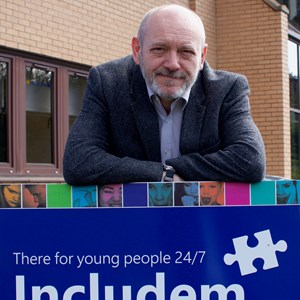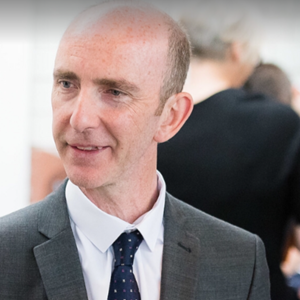"This pandemic did not create the entrenched poverty we are facing, but it has exposed its injustices."
This week, as Scotland marks Challenge Poverty Week, I have been thinking a lot about my own childhood and the experiences that have shaped me.
I was born in 1964, the youngest of nine. I was the son of a farm labourer and raised in a three-bedroom tied cottage with an outside toilet and no running hot water. Although my father was working, we could only afford hot food on Sundays and the rest of the week we survived on leftovers and bread - anyone who wants to know what a dripping sandwich is, please ask.
It’s quite the understatement to say that for my family, the benefit of free school meals and uniforms was life changing. Until the age of 14, by which time I had outgrown my siblings, I wore hand-me-down clothes, mostly from my seven sisters. We couldn’t afford transport so we walked three miles to school - and the three miles back – regardless of the weather. Learning materials and books were a luxury we could neither afford nor had time for, because if we weren’t in school, my siblings and I were put to work in some way or another.
Life changed dramatically for us the day we were evicted from our home. After six long years of struggle to keep the roof over our heads after a workplace injury left my father unable to work, the eviction notice came – as did the stigma.
At the time of the eviction, my brother was an apprentice miner so we got a ‘pit house’ with an indoor toilet and hot running water, close to shops and other amenities. Real luxury compared to what we had known before. Granted, there were still 10 of us in a three-bedroom house and we still needed free school meals and council support, but we had a roof over our heads. Nevertheless, for us as a family, the stigma and reality of entrenched poverty remained.
Why am I sharing all this? Because, today, while outside toilets and six-mile roundtrips to school on foot may be a thing of the past for most, I would argue that 50 years on from my childhood, poverty, hardship and especially the stigma that comes with them, are still all too prevalent in our society. And it isn’t getting better, as starkly highlighted by the current public health crisis and the fact that, overall, poverty declined in Scotland in the first decade of the 21st century before beginning to rise again from around 2012.
A new report by Includem, the youth support charity I lead, showed that almost half (49%) of the families we support struggle to put food on the table on a regular basis. Most (60%) who rely on social security say they struggle to pay for food at least half of the time. Foodbanks help, but as you can imagine, many children don’t want tinned food, nor does it help provide a healthy diet.
Thinking back to my own childhood, I’m shocked and saddened that to this day parents still struggle to cover transport costs, which I know all too well not only excludes children from accessing education, but their parents from getting to and from jobs and training as they try all too hard to secure the income that keeps their families afloat.
Heat poverty, chronic overcrowding and difficulty in affording the costs of digital inclusion and all that it entails - especially with the increasing move to digital learning and activity - are issues we see families struggling with every day. We were observing these hardships before Covid-19, and we have witnessed their full devastating force during this crisis.
Half of the families we spoke to as part of our research told us that they are in a worse financial position now than they were before the pandemic started, and they were in a bad place then. Most worryingly, 73% of our families tell us their mental health is worse now than it was before the pandemic started.
This pandemic did not create the entrenched poverty we are facing, but it has exposed its injustices. Covid-19 has highlighted that as a society we are still denying families access to basic needs by forcing them to prioritise eating over heating, or rent over transport. We continue to stigmatise our children by providing only basic essentials, while failing to recognise the true needs of children in their development, sense of security and their ambitions. We still make life hard for people by not supporting them more financially, and in other ways, to ensure that they have a fair chance of achieving their potential. We continue to make accessing benefits difficult - even more so now that so much is digitalised - while not addressing the fact that access to digital resources is not universal. We continue to provide loans to families who cannot repay them, plunging them into greater hardship when all they want and need is help, support and financial certainly to use as a springboard out of poverty.
What our families need most urgently is an income sufficient to meet their basic needs. Access to healthy and nutritious food, not sporadically but consistently. Affordable housing complemented by affordable (free would be better) public transport. Digital services as a public goodOur families and communities need this now, not next year or incrementally over the next five years. Now.
The Includem family know of my love of quotes so I will finish with one that I think resonates during Challenge Poverty Week. After 50 years, it is time for us to provide an income that covers the basic needs of living – not only because it is the right thing to do, but because all the evidence points to its benefits to individuals, their families, their communities and Scotland as a whole.
As Franklin D. Roosevelt once said: “The test of our progress is not whether we add more to the abundance of those who have much; it is whether we provide enough for those who have too little.”
Martin Dorchester is chief executive of Includem
Read Includem’s report ‘Poverty and the Impact of Coronavirus on Young People and Families’.
@Includem2000 www.includem.org


